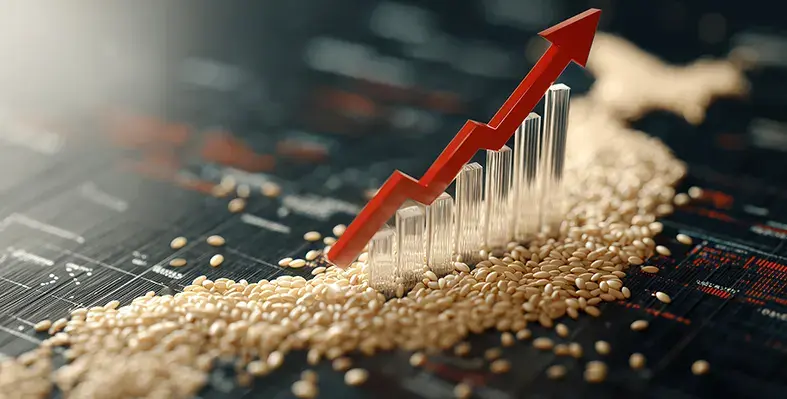
The FAO Food Price Index, a key benchmark that monitors monthly changes in globally traded food commodity prices,.
Global food commodity prices edged higher in July 2025, according to the latest FAO Food Price Index, which averaged 130.1 points—an increase of 1.6 percent from June.
This rise was mainly fuelled by higher international prices for meat and vegetable oils. Despite the month-on-month gain, the index remains significantly lower than its all-time peak in March 2022, down 18.8 percent, though it stands 7.6 percent above levels recorded in July 2024.
The FAO Food Price Index, a key benchmark that monitors monthly changes in globally traded food commodity prices, showed mixed movements across its sub-indices. While meat and vegetable oils posted noticeable gains, cereals, dairy and sugar recorded modest declines.
The FAO Cereal Price Index dipped to 106.5 points in July, a decrease of 0.8 percent from June. Falling prices for wheat and sorghum led the decline, outweighing slight increases in maize and barley. Wheat prices softened due to the arrival of new seasonal harvests across the northern hemisphere, although weather-related concerns in North America provided some underlying support. Meanwhile, the FAO All Rice Price Index fell by 1.8 percent, with the drop attributed to robust export availability and tepid global demand.
Vegetable oils saw the sharpest rise among the food groups, with the FAO Vegetable Oil Price Index climbing 7.1 percent to 166.8 points—the highest level in three years. Palm oil led the increase, driven by solid global demand and competitive pricing. Soy oil prices strengthened on expectations of continued biofuel demand in the Americas, while sunflower oil rose due to limited export supplies from the Black Sea region. Rapeseed oil, however, declined as new crops entered the European market.
The FAO Meat Price Index reached an all-time high of 127.3 points, rising 1.2 percent from the previous month. Strong demand from China and the United States pushed up prices for bovine and ovine meat. Poultry prices also saw a slight boost after Brazil regained its avian influenza-free status, encouraging trade. On the other hand, pig meat prices dropped, reflecting ample supply and reduced demand, particularly within the EU.
Dairy prices edged down slightly, with the FAO Dairy Price Index registering a 0.1 percent decline to 155.3 points. Prices for butter and milk powders fell due to healthy export volumes and lacklustre demand, especially in Asia. Cheese, however, bucked the trend, supported by firm demand from Asian and Near East markets and tighter EU export availability.
The FAO Sugar Price Index averaged 103.3 points in July, down 0.2 percent. This marks the fifth month of decline, as expectations of a production rebound in key producers—Brazil, India, and Thailand—weighed on prices. However, signs of recovering global sugar imports helped ease the fall.




